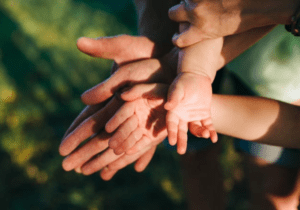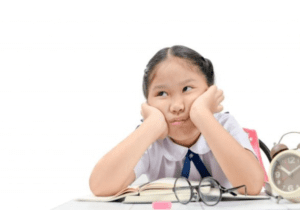What If ADHD Is a Cry for Connection?
This article has been researched and written by Hacer Subasi. AI has not been used in producing this article.
When parents encounter the diagnosis of Attention Deficit/Hyperactivity Disorder (ADHD), it is usually introduced as a neurodevelopmental disorder. The message is that the child’s brain carries an inborn dysfunction, often framed as genetically transmitted or chemically imbalanced. Yet such a framing risks overlooking one of the most fundamental insights of developmental psychology: the human brain is not fully completed in its development at birth. Rather, it continues to develop intensely in interaction with the caregiving environment.
The Sensitive Period of Life:
Researchers have shown that the first months and years of life represent a sensitive period of development. During this time, neural circuits are rapidly forming, pruning, and reorganizing. Crucially, the quality of early interactions — the caregiver’s ability to notice, respond, soothe, and attune — becomes a core organizer of the infant’s brain. The infant is not only fed and comforted but is neurologically shaped through these thousands of micro-interactions.
If these interactions are consistent and nurturing, the child develops core capacities such as emotion regulation, impulse control, and trust in others. But when they are disrupted, the developmental trajectory may shift. These disruptions are sometimes described as bonding breaks (Ladnier & Massanari, 2001) — moments in which the infant’s need for containment, comfort, or repair is not adequately met. Bonding breaks can occur for many reasons: maternal depression, premature birth requiring separation, overwhelming stress in the family system, or subtle misattunements that go unrepaired.
From Bonding Breaks to Symptoms:
When bonding breaks accumulate, the infant may become chronically overstimulated without being sufficiently soothed. In other words, what is clinically labeled as ADHD may, in fact, function as a non-verbal cry for help — an embodied attempt to restore regulation in the absence of words. This conceptualization does not deny the seriousness of the behaviors, but it reframes them: rather than “deficits ” to be corrected, they are communications to be understood.
Implications for Parenting:
This attachment-based reading carries significant implications for how parents approach their child. Instead of focusing only on behavioral control or on pharmacological solutions, caregivers are invited to consider what the behavior means in relational terms. The question shifts from “How do I stop this behavior?” to “What does this behavior reveal about my child’s early experiences of safety and connection?”
In practice, this means recognizing that the child’s struggle with attention or self-control may not be defiance but an echo of unmet needs during the sensitive period of life. Approaches that emphasize repairing relationship — consistent emotional availability, empathic listening, predictable caregiving routines, and therapeutic interventions such as family or play therapy — offer pathways to healing that go beyond symptom suppression.
Reading ADHD through the lens of attachment challenges the dominant view of the condition as a purely neurodevelopmental disorder. It suggests that what we often interpret as “inattention ” or “hyperactivity ” may, at root, be manifestations of attachment deficits shaped during the earliest phases of brain development. For parents, this perspective is not meant to assign blame but to open a space of possibility: if ADHD behaviors are also relational signals, then they can be met with relational repair.
In this sense, ADHD is not only a label but a mirror reflecting the profound influence of early caregiving on the developing brain. To see it this way is to see the child not simply as disordered, but as reaching — persistently, sometimes desperately — for connection.
Managing Depression During Social Isolation
The outbreak of the global coronavirus pandemic is stressful for many people. Since the World Health Organization (WHO) declared the COVID-19 outbreak a global pandemic, regions across the world have mandated quaran…
What are Cognitive Behavioral Therapists?
Cognitive behavioral therapy (CBT) is a common type of talk therapy (psychotherapy) that has been demonstrated effective for a range of mental health struggles including anxiety disorders, depression, substance abuse …
Managing COVID-19 – Related Anxiety
The recent increase of COVID-19 cases in Europe and in the rest of the world has seen a great increase of strong emotions, such as overwhelming fear and worry, in our community. Despite the fact that the infection has…
What to Expect at Your First Family Therapy Session
Are you feeling a bit nervous about your first family therapy session? It’s very common to feel a bit apprehensive before starting any type of therapy. Therapy involves sharing personal information and intimate detail…
What do you really know about ADHD?
ADHD, or attention deficit disorder, is a commonly known mental health disorder and can be easily described by teasing apart its acronym. Most of us have been made aware of the condition through social media, advertis…
Taking Your First Steps to Seeing a Therapist
More often than not, the first step people take towards overcoming their mental illnesses, is making the decision to talk to someone about it, whether it’s a friend or a professional. It doesn’t help that our cultural…
The Benefits of Family Therapy
Family plays an essential role in our emotional, spiritual, and intellectual lives. Over the past few decades, the nuclear family has evolved and changed. Despite these changes to what a particular family unit include…
- « Previous
- 1
- …
- 4
- 5
- 6








